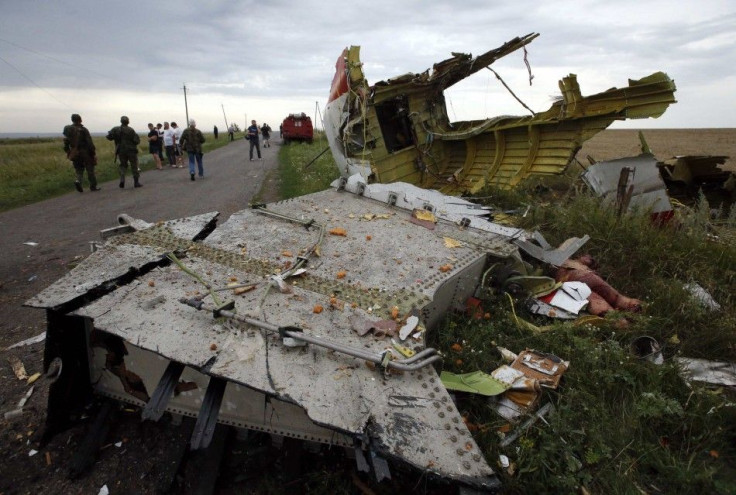Last Nail on MH: Analyst Says Malaysian Airlines Has Weak Chances of Getting Out of Financial Rut as Tragedy Strikes 2nd Time in 4 Months

Even before Malaysian Airlines Flight 370 disappeared mysteriously on March 8, 2014, the embattled air carrier was already struggling financially. The incident worsened the airline's financial standing as passengers, scared by what happened, cancelled bookings, while the company had to shoulder a lot of extra expenses related to the search and tending to the needs of the relatives of the 239 people aboard the ill-fated plane.
The second tragedy that hit Malaysian Airlines in four months could be the last nail on the embattled air carrier that has yet to recover from the March 8 incident, warned an analyst.
News of the crash of Malaysian Airlines Flight 17 after the jet was shot down by Ukrainian rebels sent shares of the air carrier down by 13 per cent on Thursday, although at one point, it had plummeted to as low as 18 per cent or MYR 0.185 before it stabilised. Shares of the airlines closed on Thursday at MYR 0.22 on the Bursa Malaysia.
A year ago, before the two aviation disasters, Malaysian Airline stocks had already dipped 36 per cent, and the March 8 disappearance caused shares of the airlines to fall further to MYR 0.25. The slide down continued until it hit a record low of MYR 0.155 on May 19.
Since then, shareprices of MAH rebounded until the second tragedy hit the company again.
"In the history of aviation ... there's never been an airline that had to go through two huge disasters in the span of four months, so I don't think there's any historical evidence that they can get out of this," Dow Jones Newswires quoted Moshshin Aziz, research analyst at Maybank Investment Bank.
But it is not just Malaysian Airlines shares that took a hit as downing of the jet also rattled U.S. financial markets on Thursday. The three major stock indices ended lower for the first time this week. Standard & Poor's 500 index dipped 23.45 points or 1.2 per cent o 1,958.12, Dow went down 161.39 points or 0.9 per cent to 16,976.81 and the Nasdaq composite index declined 62.52 points or 1.4 per cent to 4,353.45.
"What happened with the plane today and things swirling around with what may have actually happened with the plane caused a bit of a sell-off," Philly.com quoted TD Ameritrade chief strategist JJ Kinahan.
He added, "The geopolitical risk is always the first one that people look for because it's the one that changes the fastest. The market always hates uncertainty."
Outside the U.S., Germany's DAX 30 and Paris' CAC 40 shed more than 1 per cent, while London's FTSE 100 dipped 0.68 per cent.
Vox.com, however, pointed out that share prices of the air carrier has been sliding consistently for the past three years, worsening the financial problem of Malaysian Airlines "that it's difficult to lay the blame for its problems at the feet of these tragedies."
It forecast that Kuala Lumpur could likely become more desperate to find a new way for its flag carrier that has been on a downward trajectory, hastened by the two aviation mishaps.
YouTube/CNBCNews11





















